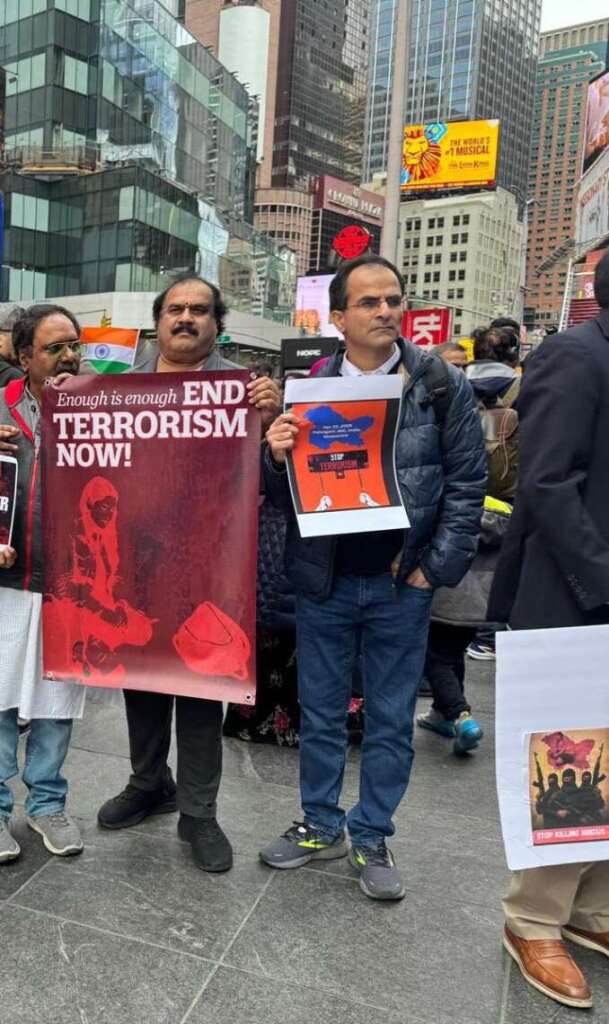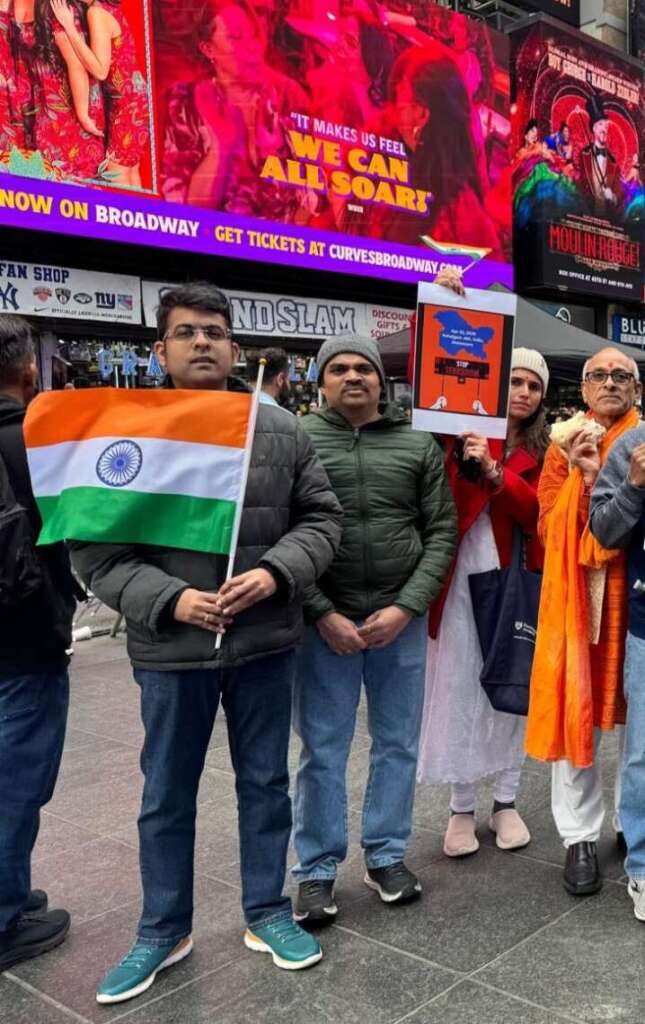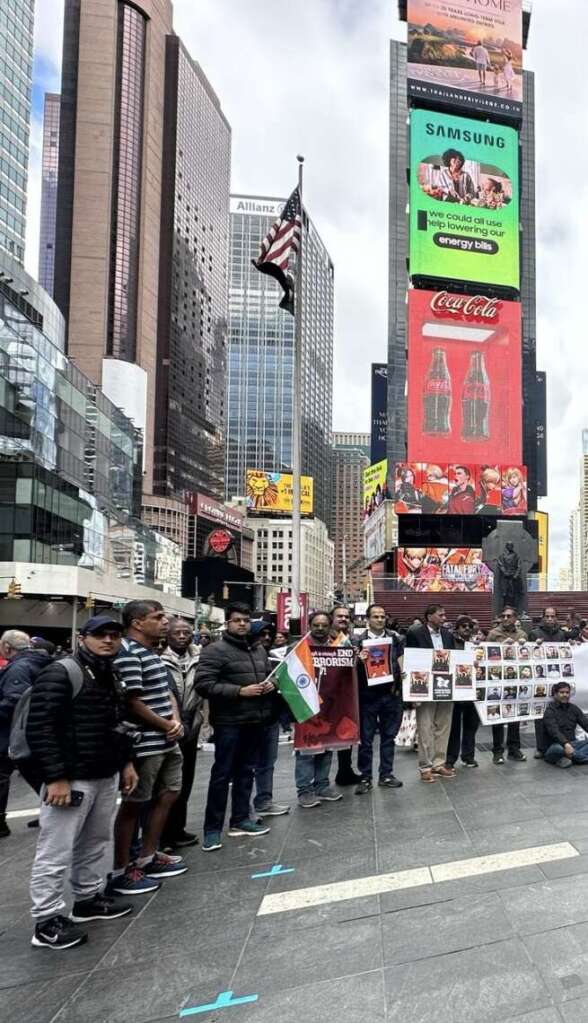A powerful message lit up New York’s Times Square this week as a digital truck bearing images of victims from the recent terror attack in Pahalgam, Jammu and Kashmir, made its way through the bustling heart of Manhattan. The moving billboard called on the international community to stand against terrorism and deliver justice for the 26 civilians—many of them Hindu tourists —killed in the brutal assault earlier this month.
The digital poster on the truck read: “Humanity bleeds in Pahalgam. The world must wake up.” Another message simply but forcefully declared: “We demand justice.” The display included portraits of some of the victims, and footage of the scenic Baisaran meadows—the site of the attack—overlaid with messages highlighting the tragedy’s scale and targeting of innocents.
The imagery was both symbolic and strategic: Times Square, often described as “the crossroads of the world,” is one of the most visible places to send a global message. The campaign coincided with ongoing protests and demonstrations by members of the Indian diaspora in the United States and elsewhere.

Last week, hundreds of Indian Americans and allies gathered at Times Square in a show of solidarity. Chanting slogans and holding placards, they condemned the Pahalgam attack and urged the global community to take stronger action against Pakistan-sponsored terrorism.
The Indian Consulate in New York acknowledged the protest, posting on X (formerly Twitter): “A large number of Indian community members and friends of India gathered at Times Square to express their deep sorrow and condemnation over the terrorist attack in Pahalgam.”
A Call for Global Attention
The attack in Pahalgam’s popular Baisaran valley—often referred to as “mini Switzerland”—shook the nation and raised fresh concerns over the safety of tourists and pilgrims in the Kashmir region. While no group has officially claimed responsibility, Indian security agencies have attributed the assault to Pakistan-backed Islamist groups operating across the border.

The attack, one of the deadliest in the region since the 2019 Pulwama bombing, has prompted a series of high-level security meetings in New Delhi. According to sources cited by NDTV, Prime Minister Narendra Modi has given the Indian armed forces “full freedom to decide on the mode, targets, and timing” of the military response.
In a key meeting with Defence Minister Rajnath Singh, National Security Advisor Ajit Doval, and Chief of Defence Staff General Anil Chauhan, the Prime Minister reportedly reaffirmed the government’s commitment to “deal a crushing blow to terrorism” and expressed “complete faith and confidence” in India’s security forces.
The same evening, Home Minister Amit Shah and Rashtriya Swayamsevak Sangh (RSS) chief Mohan Bhagwat met with the Prime Minister, signalling strong political and organisational alignment behind a decisive response.
Echoes of Pulwama, Balakot
The situation has drawn comparisons to the aftermath of the 2019 Pulwama attack, which saw India conduct air strikes on terrorist training camps in Balakot, Pakistan. Those camps were run by Jaish-e-Mohammed (JeM), the same group believed to be involved in the recent Pahalgam killings.

With the government now signalling a muscular diplomatic and military posture, many observers believe India may again pursue precision retaliation targeting terror infrastructure across the border.
The Pahalgam attack also revives discussions around the role of Pakistan’s Inter-Services Intelligence (ISI) in sponsoring cross-border militancy and raises questions over the international community’s selective silence.
India’s message—both in New York and at home—is clear: the world must not look away.














